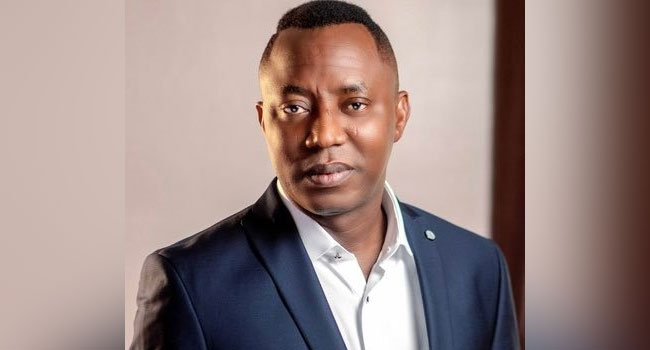Abuja – Monday, October 27, 2025 — In a dramatic turn of events following last week’s protest in the Federal Capital Territory, prominent rights activist and publisher Omoyele Sowore has been released from the Kuje Correctional Centre, Abuja, after spending four days in detention.
Joining him in his release was the lawyer of Nnamdi Kanu, the leader of the Indigenous People of Biafra (IPOB), Aloy Ejimakor, along with the younger brother of Kanu, Prince Emmanuel Kanu, and 11 other individuals who were remanded in the same case.
What happened
On Thursday, October 23, Sowore was arrested outside the Federal High Court in Abuja shortly after attending a proceeding involving the IPOB leader.
He and others had participated in a protest under the banner “#FreeNnamdiKanuNow” that disrupted traffic in parts of Abuja and demanded the release of Kanu. The protest was subsequently dispersed and the organisers arrested by police.
A magistrate court in Kuje, presided by Abubakar Umar Sai’id, arraigned the protesters on charges of unlawful assembly and disturbance of public peace. Bail was set at ₦500,000 each and included conditions such as the presentation of a valid National Identification Number (NIN), three-year tax clearance certificate and submission of passport.
Following the fulfilment of these bail conditions, the detainees were released from incarceration at the Kuje Correctional Centre on Monday morning. Sowore confirmed his release via a post on X, where he described his detention as “illegal” and called for the release of Nnamdi Kanu.
Implications & reactions
- The release of Sowore and Ejimakor underscores the tension between civil society activism and the government’s approach to demonstrations concerning high-profile detainees like Nnamdi Kanu.
- During his arrest, Sowore alleged that the government aimed to keep Kanu in detention indefinitely, adding fuel to the ongoing dispute around Kanu’s case.
- Meanwhile, the involvement of Kanu’s legal counsel in the protest raises questions about legal ethics, with government advisers having previously called for regulatory action against Ejimakor for his public activism.
What to watch
- Whether further charges will be pressed against the protestors, or if the state will pursue disciplinary measures against participating lawyers.
- The status of Nnamdi Kanu’s ongoing trial and how this protest and its aftermath might affect his legal process.
- The government’s handling of future demonstrations in the capital, especially those linked to politically sensitive figures.

